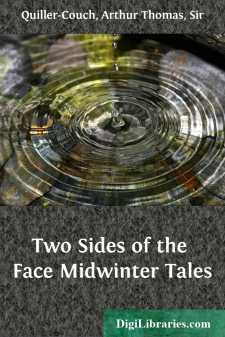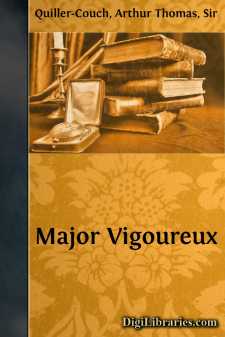Categories
- Antiques & Collectibles 13
- Architecture 36
- Art 48
- Bibles 22
- Biography & Autobiography 813
- Body, Mind & Spirit 142
- Business & Economics 28
- Children's Books 13
- Children's Fiction 10
- Computers 4
- Cooking 94
- Crafts & Hobbies 4
- Drama 346
- Education 46
- Family & Relationships 57
- Fiction 11828
- Games 19
- Gardening 17
- Health & Fitness 34
- History 1377
- House & Home 1
- Humor 147
- Juvenile Fiction 1873
- Juvenile Nonfiction 202
- Language Arts & Disciplines 88
- Law 16
- Literary Collections 686
- Literary Criticism 179
- Mathematics 13
- Medical 41
- Music 40
- Nature 179
- Non-Classifiable 1768
- Performing Arts 7
- Periodicals 1453
- Philosophy 64
- Photography 2
- Poetry 896
- Political Science 203
- Psychology 42
- Reference 154
- Religion 513
- Science 126
- Self-Help 84
- Social Science 81
- Sports & Recreation 34
- Study Aids 3
- Technology & Engineering 59
- Transportation 23
- Travel 463
- True Crime 29
Arthur Thomas Quiller-Couch
Arthur Thomas Quiller-Couch (1863-1944) was a renowned British writer and literary critic, best known for his influential work on English literature. He authored the classic "The Oxford Book of English Verse" and significantly contributed to the field of literary studies through his lectures at the University of Cambridge, where he held the position of King Edward VII Professor of English Literature. Quiller-Couch, often writing under the pen name "Q," was also a prolific novelist and short story writer, celebrated for his skillful storytelling and keen insight into human nature.
Author's Books:
Sort by:
A Tale of Wild Justice. I. Beside a high-road in the extreme West of England stands a house which you might pass many times without suspecting it of a dark history or, indeed, any history worth mention. The country itself, which here slopes westward from the Mining District to Mount's Bay, has little beauty and—unless you happen to have studied it—little interest. It is bare, and it comes near...
more...
"Yes, sir," said my host, the quarryman, reaching down the relics from their hook in the wall over the chimneypiece; "they've hung here all my time, and most of my father's. The women won't touch 'em; they're afraid of the story. So here they'll dangle, and gather dust and smoke, till another tenant comes and tosses 'em out o' doors for rubbish. Whew!...
more...
CHAPTER I AT THE SIGN OF THE GOOD SAMARITAN "That it may please Thee to preserve all that travel by land or by water . . . all sick persons, and young children."—THE LITANY. "I love my love with a H'aitch, because he's 'andsome—" Tilda turned over on her right side—she could do so now without pain— and lifting herself a little, eyed the occupant of the next bed....
more...
CHAPTER I IN THE GARRISON GARDEN "Archelaus," said the Commandant, "where did you get those trousers?" Sergeant Archelaus, who, as he dug in the neglected garden, had been exposing a great quantity of back-view (for he was a long man), straightened himself up, faced about, and, grounding his long-handled spade as it were a musket, stood with palms crossed over the top of it. "Off...
more...
THE BLUE PAVILIONS. TO A FORMER SCHOOLFELLOW. MY DEAR —, I will not write your name, for we have long been strangers; and I, at any rate, have no desire to renew our friendship. It is now ten years and more from the end of that summer term when we shook hands at the railway-station and went east and west with swelling hearts; and since then no report has come of you. In the meantime you may have...
more...
THE MASTER OF ST. HOSPITAL. 'As poor, yet making many rich; as having nothing, and yet possessing all things…' The Honourable and Reverend Eustace John Wriothesley Blanchminster, D.D., Master of St. Hospital-by-Merton, sat in the oriel of his library revising his Trinity Gaudy Sermon. He took pains with these annual sermons, having a quick and fastidious sense of literary style. "It...
more...
DEDICATION. MY DEAR WILLIAM ARCHER, Severe and ruthlessly honest man that you are, you will find that the levities and the gravities of this book do not accord, and will say so. I plead only that they were written at intervals, and in part for recreation, during years in which their author has striven to maintain a cheerful mind while a popular philosophy which he believed to be cheap took possession...
more...
CHAPTER I. ROSEWARNE OF HALL. John Rosewarne sat in his counting-house at Hall, dictating a letter to his confidential clerk. The letter ran— "Dear Sir,—In answer to yours of the 6th inst., I beg to inform you that in consequence of an arrangement with the Swedish firms, by which barrel-staves will be trimmed and finished to three standard lengths before shipment, we are enabled to offer an...
more...
PIPES IN ARCADY. I hardly can bring myself to part with this story, it has been such a private joy to me. Moreover, that I have lain awake in the night to laugh over it is no guarantee of your being passably amused. Yourselves, I dare say, have known what it is to awake in irrepressible mirth from a dream which next morning proved to be flat and unconvincing. Well, this my pet story has some of the...
more...
THE OMNIBUS. It was not so much a day as a burning, fiery furnace. The roar of London's traffic reverberated under a sky of coppery blue; the pavements threw out waves of heat, thickened with the reek of restaurants and perfumery shops; and dust became cinders, and the wearing of flesh a weariness. Streams of sweat ran from the bellies of 'bus-horses when they halted. Men went up and down...
more...











